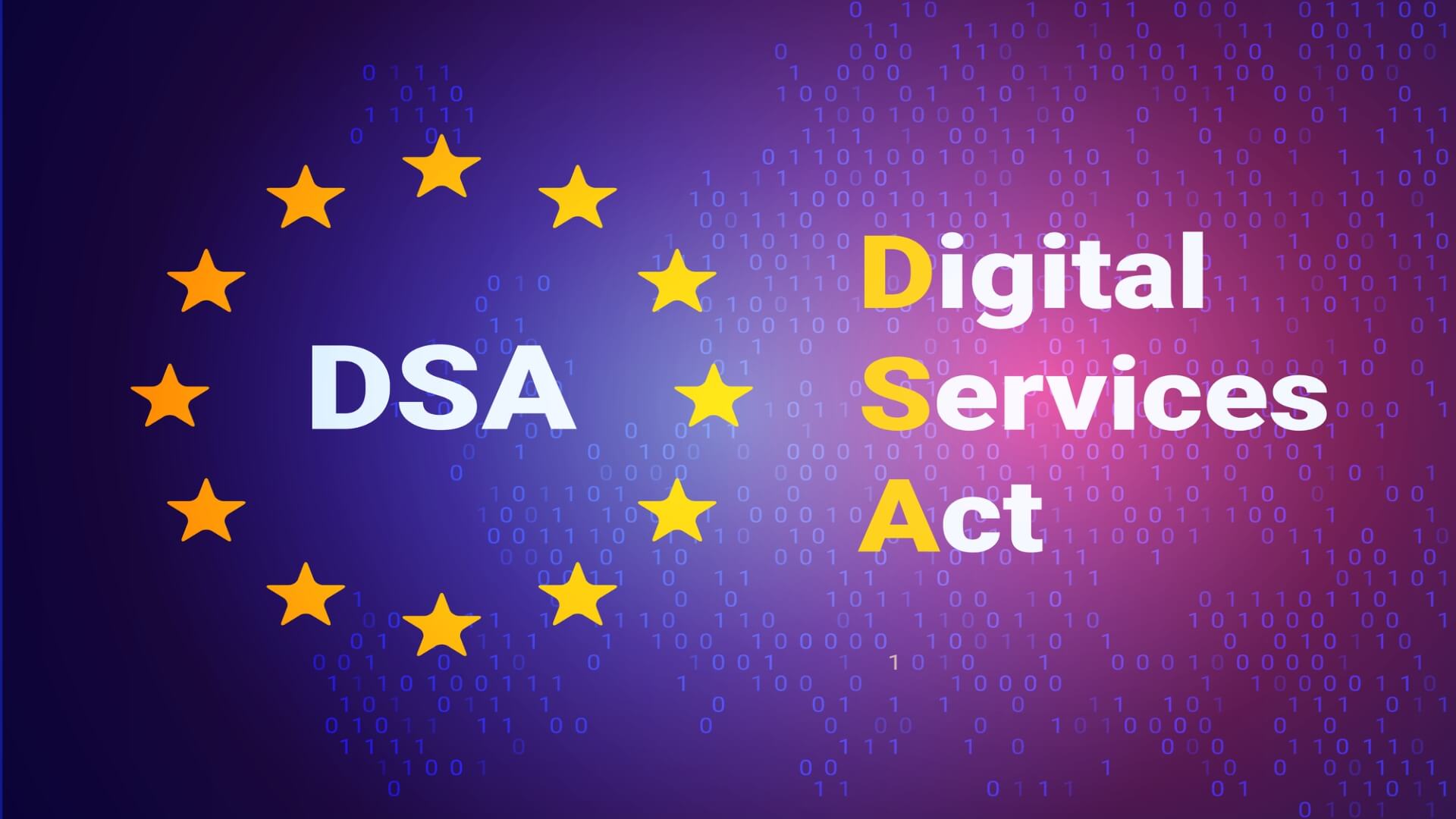The goal of the Digital Services Act is to foster online safety and accountability. The Digital Services Act is aimed at ensuring online platforms must implement ways to prevent and remove posts containing illegal goods, services, or content. At the same time, it gives users the means to report this type of content. The rules in the ACT primarily concern online intermediaries and platforms, such as online marketplaces, social networks, content-sharing platforms, app stores, and online travel and accommodation platforms. If the platform or a search engine has more than 45 million users (10% of the population in Europe), the Commission will designate the service as a very large online platform or a very large online search engine, and they will have 4 months to comply. This includes carrying out and providing the Commission with their first annual risk assessment.
The Digital Services Act aims to safeguard peoples’ rights to freedom of expression and information, freedom of thought, and the right to form an opinion freely without manipulation. All intermediaries will be obliged to establish a single point of contact for direct communication between them and their users. If they restrict user-generated content, they will need to provide a statement of reason explaining what type of action was taken and on what basis. The Act anticipates having a three-tiered grievance mechanism: internal complaint-handling system provided by platforms free of charge; out-of-court dispute settlement; and judicial redress that must be always available. In addition, it bans targeted advertising based on a person’s sexual orientation, religion, ethnicity, or political beliefs and puts restrictions on targeting ads to children. It also requires online platforms to provide more transparency on how their algorithms work. Here is an opinion piece we found of interest relating to the Digital Services Act.
Europe is changing social media for the better — the US can do it, too
In an opinion piece “Europe is changing social media for the better — the US can do it, too” for The Hill, Marietje Schaake, former member of the EU Parliament, international policy director at the Cyber Policy Center at Stanford University and a member of the Real Facebook Oversight Board, discusses the European Union (EU) August 25th compliance deadline for the world’s largest social media platforms, including Facebook, Twitter and Tik Tok. Under the EU’s Digital Services Act (DSA), the EU has spelled out corporate responsibilities for cracking down on illegal, harmful and hateful content in an effort to hold Big Tech accountable and make social media safer for young people, voters and minorities. She argues that it should offer both a blueprint and encouragement on how to move forward, and cooperation between the EU and U.S. would go a long way in setting better, democratic, global standards.
Schaake points out that the DSA is structured to meet the regulatory demands of the modern internet. By targeting “intermediary services,” which encompass social media platforms, search engines and online marketplaces, the law scrutinizes how large tech companies handle user-generated content. The Act encourages stronger detection, flagging and removal of illegal content, with harsher penalties for service providers who don’t comply. Read the full article on The Hill.
Disclosure: Fatty Fish is a research and advisory firm that engages or has engaged in research, analysis, and advisory services with many technology companies, including those mentioned in this article. The author does not hold any equity positions with any company mentioned in this article.
The Fatty Fish Editorial Team includes a diverse group of industry analysts, researchers, and advisors who spend most of their days diving into the most important topics impacting the future of the technology sector. Our team focuses on the potential impact of tech-related IP policy, legislation, regulation, and litigation, along with critical global and geostrategic trends — and delivers content that makes it easier for journalists, lobbyists, and policy makers to understand these issues.
- The Fatty Fish Editorial Teamhttps://fattyfish.org/author/fattyfish_editorial/January 19, 2024
- The Fatty Fish Editorial Teamhttps://fattyfish.org/author/fattyfish_editorial/January 3, 2024
- The Fatty Fish Editorial Teamhttps://fattyfish.org/author/fattyfish_editorial/January 3, 2024
- The Fatty Fish Editorial Teamhttps://fattyfish.org/author/fattyfish_editorial/December 31, 2023









